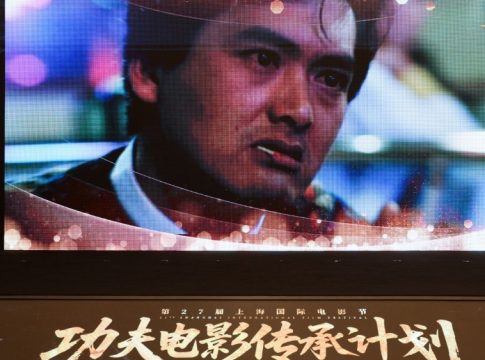Reviving Martial Arts Cinema with AI: The Kung Fu Film Heritage Project
As the intersection of technology and artistry continues to evolve, the realm of cinema is experiencing a digital renaissance. Recently, the 27th Shanghai International Film Festival unveiled an ambitious initiative—the Kung Fu Film Heritage Project—intended to breathe new life into classic martial arts films through cutting-edge artificial intelligence.
Digitally Resurrecting Classics
The cornerstone of this initiative is a monumental effort to restore 100 landmark kung fu films using AI technologies. Organizers aim to digitally enhance the visual and audio quality of these cinematic gems while preserving their original storytelling essence. This project seeks not only to revive beloved films featuring icons like Bruce Lee and Jackie Chan but also to reaffirm the cultural significance of martial arts cinema. According to Zhang Qilin, chair of the China Film Foundation, these films serve as vital representations of Chinese culture reaching out to global audiences.
Among the titles slated for restoration are classics such as "Fist of Fury," "The Big Boss," and "Drunken Master." The project is backed by a substantial budget, with RMB100 million ($13.9 million) allocated for the first phase, focusing on an initial selection of films. Tian Ming, chair of Canxing Media, emphasized that while AI is a technological tool, creativity remains the "soul" of this endeavor.
Pioneering AI Animation
In addition to film restoration, the festival introduced a novel animated work entitled "A Better Tomorrow: Cyber Border," touted as the world’s first fully AI-generated animated feature. This film, a futuristic twist on the John Woo classic, showcases how AI can streamline production processes dramatically. Created by a team of just 30 people, the filmmaking timeline has shrunk from years to mere months, reflecting a fundamental shift in the industry.
Zhang Qing, the film’s producer, noted that the project serves as a proof of concept, exploring new storytelling techniques that blend martial arts with advanced animation. He encouraged creators to extend their narratives beyond traditional formats, eyeing the global gaming market as an avenue for expansion.
Navigating the AI Landscape
The potential of AI in film isn’t merely theoretical. Institutions are recognizing the need for regulation and support to foster this technological shift. He Tao from the National Radio and Television Administration emphasized the importance of recent policy measures designed to manage generative AI services. This regulatory backdrop aims to ensure sustainable growth in media through AI while enabling filmmakers to leverage the technology effectively.
With specialized Industry-Academia-Research Centers being established in multiple cities, talent development and experimentation are on the rise. Rapid advancements in rendering technology have slashed visual effects processing times drastically, a game-changer for filmmakers.
The Future of Kung Fu Cinema
At the festival’s conclusion, tributes were paid to several industry veterans, illustrating the deep-rooted passion for kung fu films within the film community. Yuan Hong, a notable producer, pledged his continued dedication to this cultural revival, while others echoed the sentiment that this initiative represents not a departure from the past but an opportunity to give it new life.
The launch of the AI Reboot Project signifies a pivotal moment for filmmakers and martial arts enthusiasts alike. As we stand on the cusp of this new era in storytelling, the fusion of technology and tradition promises to open up fresh avenues for exploration in the cinematic arts—ensuring that the legacy of kung fu films continues to captivate and inspire audiences worldwide.

Writes about personal finance, side hustles, gadgets, and tech innovation.
Bio: Priya specializes in making complex financial and tech topics easy to digest, with experience in fintech and consumer reviews.

